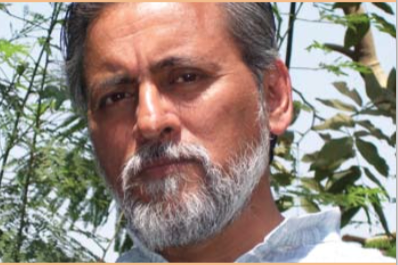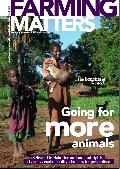In terms of climate change, Anil Gupta feels that we must recognise that the future leaders of the fight against it will be the unsung heroes currently surviving in flood-prone villages and communities in the Arctic region, in deserts and on the coasts. They are the ones who still have insights about coping with long and short term changes in climate. They are the owners of in-depth knowledge about local survival and support systems.

Recent controversy surrounding the IPCC report has brought out this bias among scientists once again. They should have noticed the ringed seals surfacing briefly with heads upwards: that means upcoming storms! Traditional Inupiaq hunters from Alaska have survived for ages because of such indicators. In Africa, when the malaria-carrying mosquito can survive at higher latitudes, local communities are caught unawares. In the absence of immunity they may fall victim to malaria more often. They have to search for new ways of treating the disease. Their laboratory of life is filled with new ideas, experiments and explorations, knowing that the cost of failure is very high.
The behaviour of birds, snakes, animals, insects and plants teaches us a lot. It can continue to do so provided we build a database of all such insights, collected through a worldwide grassroots campaign to report and distill societal wisdom. For example, Fan Sheng-Chih’s Chinese Encyclopedia was written in the first century BC and it reports that melted snow improves retention of moisture in soil and kills insects. Treatment of seeds with melted snow gives drought tolerance to plants and yields better.
Should we not urgently take up research on the quality of water of different glaciers and their potential in enabling local communities to deal with increased vulnerability to such problems? We must recognise that the future leaders of the fight against climate change will be the unsung heroes currently surviving in flood-prone villages and communities in the Arctic region, in deserts and on the coasts. They are the ones who still have insights about coping with long and short term changes in climate. They have in-depth knowledge about local survival and support systems. But where is the sense of urgency to learn from centenarians around the world? Let us be humble and resolve to sit at the feet of such old people and their local communities. We should try to understand which knowledge from their cultural and institutional memory is of current relevance and which is not. That itself will convince us about the reality of climate change, even if scientists continue to falter.
Text: Anil Gupta
Professor Anil Gupta teaches innovation management at the Indian Institute of Management in Ahmedabad. He is the founder of the Honey Bee Network (www.sristi.org), which collects and disseminates traditional knowledge and helps facilitate grassroots innovation.

